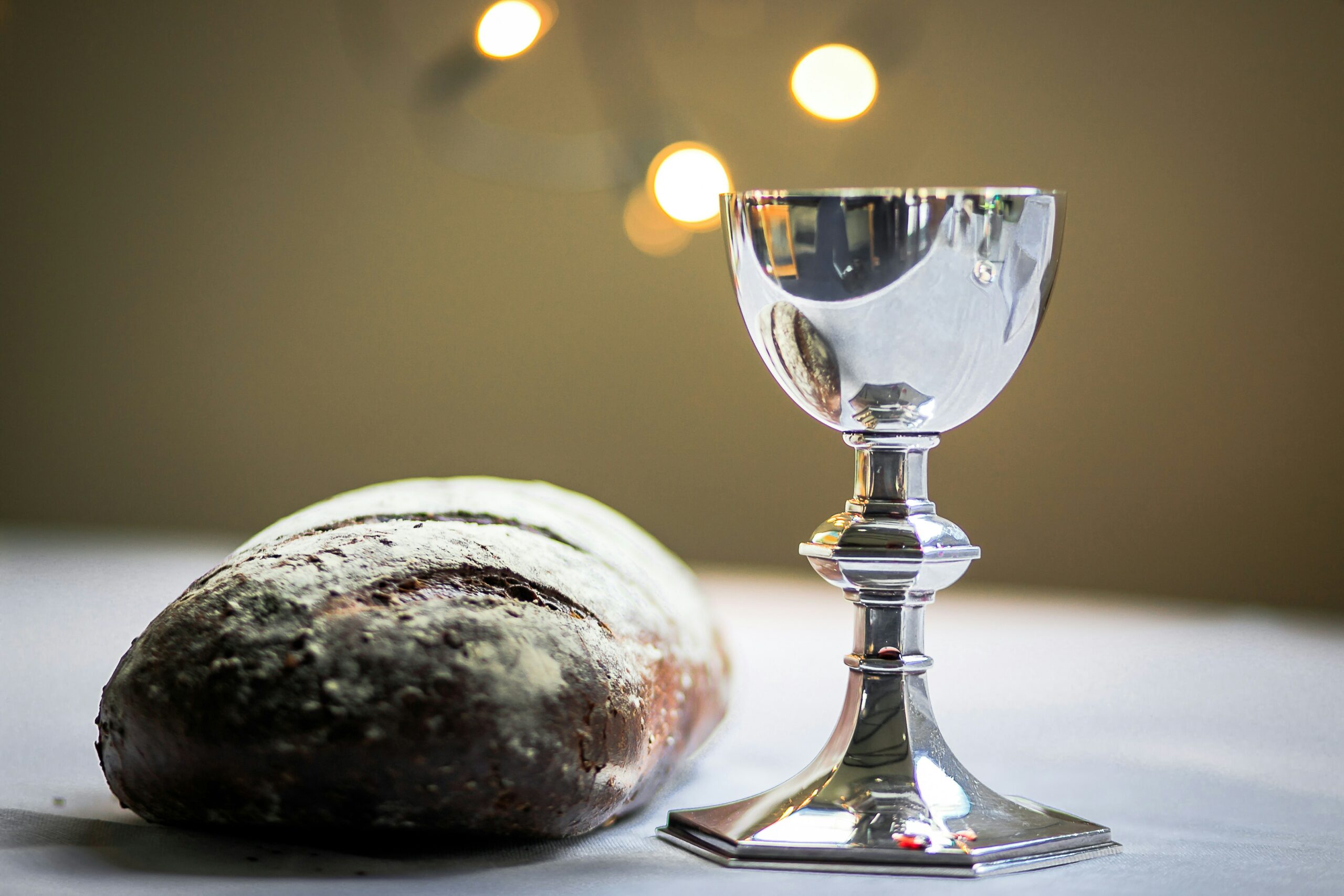The last week I’ve been memorising the poem “Love Bade Me Welcome” by George Herbert. Reflecting on the poem is a happy way to prepare for the Lord’s Table this Sunday. Therefore, let me share a few of the crumbs with which the Holy Spirit has been feeding my heart.
The poem begins,
Love bade me welcome. Yet my soul drew back
Guilty of dust and sin.
But quick-eyed Love, observing me grow slack
From my first entrance in,
Drew nearer to me, sweetly questioning,
If I lacked any thing.
There are few actions more consoling than receiving a warm and sincere welcome. Most of us have an orphan mentality. We hide from others because we feel insecure. What a thought to picture Love swinging the door open to the soul. And do not miss the verbs, adjectives, and adverbs associated with Love in the poem. Love is “quick-eyed”; love takes the initiative (i.e. “drew nearer”); love speaks “sweetly”. Who does not want to feel the delicious embrace of such Love?
Of equal interest is the description of the self in the stanza. I feel as if I know this “soul” intimately. In fact, it is mine. In spite of the greetings of love, there is something in the self that, like a hurt child, draws back. The response is not rational, but it is real. We all know what it is to turn away from the parent whose only desire is to comfort us.
The second stanza continues,
A guest, I answered, worthy to be here:
Love said, You shall be he.
I the unkind, ungrateful? Ah my dear,
I cannot look on thee.
Love took my hand, and smiling did reply,
Who made the eyes but I?
This stanza extracts the problem lodged in the self that results in slackness toward love. In a word, it is shame, a glaring sense of unworth. The soul steeped in shame is too self-obsessed to allow itself to be embraced. All it can think about is personal guilt, personal unimportance, and personal ugliness.
But true love is unrelenting. Again, pay attention to verbs used in relation to Love. In response to the downward cast eyes of a self-deprecating soul, Love locks hands, beams a radiant smile, and poses a coaxing question that – now, for the first time in the poem – unveils the identity of Love. This is not mere human love engaging the soul; this is what Charles Wesley would call Love Divine.
The final stanza is this:
Truth Lord, but I have marred them: let me shame
Go where it doth deserve.
And know you not, says Love, who bore the blame?
My dear, then I will serve.
You must sit down, says love, and taste my meat:
So I did sit and eat.
Carried over into this stanza is the defilement of the soul. As of yet, the contest is not over. We cannot tell whether the self will find the courage to relax into the arms of love or whether it will stay frigid and hard. One can almost hear the voice of Peter in the lines: “Depart from me; for I am a sinful man, O Lord!” (Luke 5:8). But love, like Jesus, wrestles on until it has the victory. Each excuse for flight is parried by a gentle question. Love refuses to play by the rules of desert. The debt of shame is cancelled by the extravagance of grace. Love did not need to be asked to bear the blame; the soul was loved before the soul even knew that Love existed.
The final three lines are a concise restatement of Jesus’ parable of the Prodigal Son. Just as the younger brother reasoned his way home by the logic of demotion, so the soul here is only willing to step across the threshold of Love if permitted to do service. Yet, here we see a new side of Love: its ingratiating stubbornness. Love does not say, “Please sit down,” but, “You must sit down.” Love knows that ultimately the change needed in the soul will not happen by logic or reasoning; experience is the only effective curriculum. To taste something is not to ponder it, evaluate it, or scrutinise it. We must think here of the beautiful lines of Ps. 34:8, “Taste and see that the Lord is good.” The sweetness of grace is like the warmth of a hug: one must feel it to know it.
And so, the poem leaves us with the soul flat out of excuses and seated like the sinners of Galilee at a table as unexpected as it is unmerited. Love has won, as Jesus inevitably does. His love, which is stronger than death, is also stronger than shame.
Let me encourage you to reflect on this poem as you prepare for the Lord’s Table this Sunday. The message of the gospel is that of the poem: “Love bade me welcome.” Hear the voice of Jesus inviting you this Lord’s Day to lay down your shame, to detach from self-reflection, and to taste the sweetness of a food and drink that, among other things, is the voice of God whispering, “I love you.”


